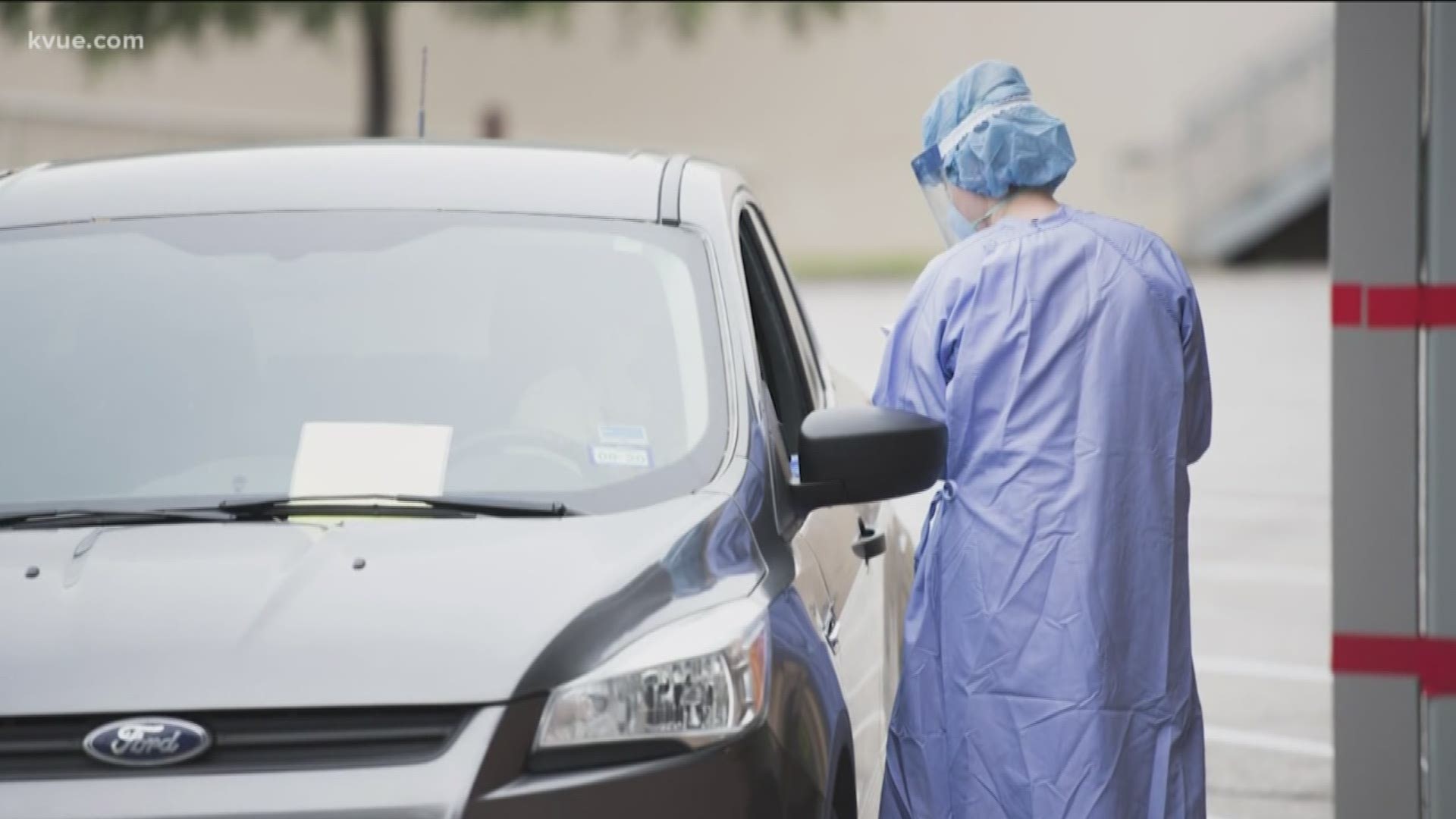AUSTIN, Texas — On Monday, Gov. Greg Abbott laid out his plan to reopen the Texas economy. Many stores will re-open and some industries will stay closed, but Abbott said testing for COVID-19 will remain the same high priority it has always been during this pandemic.
"When you aggregate all of the tests run by the state and local governments, with the rapidly increasing number of tests run by the private sector, we should easily exceed our goal of 25,000 tests per day," Abbott said at a press conference Monday afternoon.
After the conference ended, the Texas Medical Association (TMA) expressed its support for Abbott's plan, calling it "prudent and careful."
RELATED:
"We only can open up and feel comfortable with it when we have that ability not only to test but to check the contacts of all those who test positive," said Dr. David Fleeger, the president of the TMA.
While supporting the governor's plan to reopen Texas, Dr. Fleeger also called on Abbott to expand the ability to test. Dr. Fleeger believes the peak of new COVID-19 cases may come this week in Texas. As the number of new cases declines, Dr. Fleeger said testing and contact tracing will become even more important.
"When we have a contact who is positive, we want to isolate that individual and all of their contacts so we don’t have another flare," Dr. Fleeger said.
Flare-ups can cause a resurgence in the spread of coronavirus, especially as businesses begin to reopen even with the governor's restrictions.
"Because there will be an increase in the amount of testing, it's only logical to see there be an increase in the number of people who test positive," Abbott said.
Abbott's Strike Force to Reopen Texas created a graphic to show the three-phase increase of contact tracing. Phase I has already finished, Phase II started Monday and Phase III will look to get started on Monday, May 11.
"It became impossible at one point to be able to trace everyone in the community who had COVID-19," Dr. Fleeger said. "Now that we have fewer cases, now that we’re essentially at the peak and hopefully things will start decreasing, it becomes more important for us to do that, the tracing of contacts."
Contact tracing consists of finding out where a COVID-19 positive patient has been and who they have had direct contact with. Tracers then contact those people, warning them they have been exposed. It's then up to those individuals to self-quarantine for 14 days. Abbott called this a way to "box in the expansion of COVID-19" during his press conference.
"That is the new normal for the foreseeable future," Dr. Fleeger said. "We continue to need to isolate, to make sure we have respiratory etiquette, wear the masks when you’re in public. We need to continue to stay home if you’re sick, call your doctor if you have symptoms. All those things that we’ve talked about over and over again, that’s the new normal. That’s what we’re going to need to do for months and months and months to come."
To expand testing, the Centers for Disease Control announced six new symptoms of COVID-19:
- Chills
- Repeated shaking with chills
- Muscle pain
- Headache
- Sore throat
- New loss of taste or smell
Increased testing has already taken place for the City of Austin and Travis County.
"In the first few days of Austin’s Public Testing Enrollment Form launching, more than 1,800 people have created accounts and completed the assessment form," the City of Austin said in a news release Monday. "Out of those individuals, 538 people met the necessary testing criteria and have been scheduled for a COVID-19 test."
MORE CORONAVIRUS COVERAGE:
- Starting May 1, Texas restaurants can use 25% of their dining areas
- Coronavirus in Texas: Austin-Travis County reporting 1,464 COVID-19 cases, 42 deaths
- Texas 'stay home' order will expire April 30, Gov. Abbott says
- LIST: Confirmed Central Texas coronavirus cases by county
- All Together ATX raises more than $5M to help community impacted by coronavirus, and the fundraiser isn't over
- 'We are stronger than we think' | Austinite waves flag to raise spirits during coronavirus pandemic
- Texas governor, attorney general issue joint updated guidance for houses of worship

